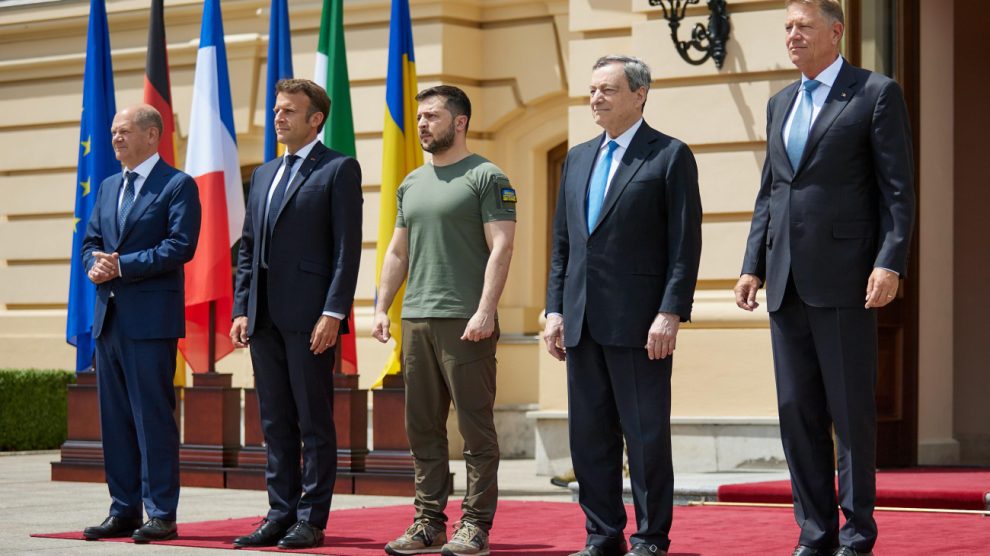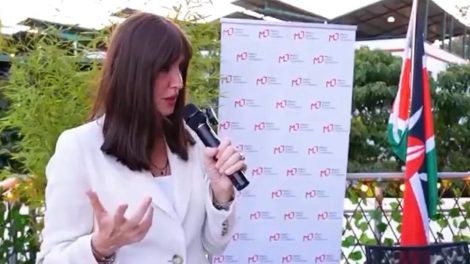Here for you. On Thursday, the leaders of France, Germany and Italy made their way to Kyiv. The joint trip is a symbolic show of support while the Russian invasion continues in Ukraine’s east.
- President Emmanuel Macron, Chancellor Olaf Scholz and Prime Minister Mario Draghi travelled during the night, via train, from Poland. They’re slated to visit a war site and meet with President Zelensky to discuss all manners of support to his country’s cause.
- “It’s an important moment,” said Mr Macron to reporters at a train station in Kyiv. “It’s a message of unity we’re sending to the Ukrainians, of support, to talk both about the present and the future, since the coming weeks, as we know, will be very difficult.”
All good back home? The three leaders are also carrying their countries’ differing views on how and how much to help Ukraine. A new report from the European Council on Foreign Relations, a think tank, shows that the rifts in European public opinion are widening.
- “The big looming divide is between those who want to end the war as quickly as possible and those who want to carry on fighting until Russia has been defeated,” note the authors.
- This growing shift of opinions could impact or seriously hinder the EU’s resolve in supporting Ukraine against Russia, as it did for the first 100 days.
The blame game. Overall, Europeans still believe the Kremlin is responsible for the war; 73% of them blame Russia for its outbreak, while 15% either blame Ukraine, the EU or the US.
- The data varies significantly between countries: 90% of Finns blame Russia, as do 66% of Germans, with the lowest number being in Italy – 56% (you may thank the spread of Russian propaganda in Italy for that dismal result).
Peace vs Justice. ECFR surveyors charted the existence of three “camps” of thought. Across the EU, 35% of people support “Peace” in Ukraine – whatever form that may take – and 22% favour “Justice” – that is, help Ukraine regardless of the cost until Russia retreats. The remaining 43% are evenly split between swing voters who still broadly support the EU’s actions or undecided.
The expert’s take. Marta Dassù, director of Aspenia and former deputy foreign minister, told Decode39 that “how to deal with Russia has always been a rather divisive issue in Europe. If anything, the reaction to the war in Ukraine has bridged the gaps rather than widen them (and Hungary is just a marginal exception). Both NATO and the EU are demonstrating that they are able to accommodate some differences of opinion in the context of a general consensus on strategic decisions.”
Looking ahead. Ms Dassù believes that “the problem is not mistrust among the European countries, but domestic consensus down the road. France, Germany and Italy stand by Ukraine with no ambiguity, but governments know that voters are worried and nervous, especially in the current economic predicament. However, the way out of this dilemma is economic policies much more than negotiations with Russia.”
- “If the war drags on, the existing consensus will be tested more severely: but the conditions for a truce are not in Europe’s hands. ‘Peace plans’ reflect more a concern for a political backlash in our societies than a real persuasion in Europe’s role as a credible negotiating actor.”
- “A big question mark concerns the more distant future: once the war is over – or frozen – two camps on how to deal with Russia could very well re-emerge.”





